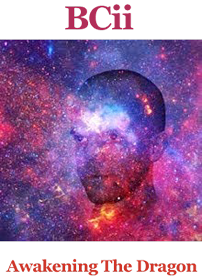This is a Google translate from a Dutch webpage; so sorry for the 'crummy' english ;)
My summary: 'Why the New Shangri-La?'
The boss of all things
by Pieter Stuurman - Anarchiel.com
A man can turn his attention to many things. And of all those things which he can choose to focus his attention, he chooses in most cases the subject with the highest priority.
For anyone who takes the trouble for people watching, can not but be clear then that this topic, the topic of money". Money is the boss of things.
Money plays a central role in the life of modern man. Perhaps, life is not quite the man of money, but almost surely. It determines where you grew up, where you go to school, with whom you deal, you go to live, what work you do, and so on.
Of course there are people who deny that money plays a leading role in their lives, but people who say that are always people with money again. And so it is again the money factor that is decisive. Without money because you can not say money is unimportant to you.
Let's admit it: Money is a key event on one when it comes to our attention. And that's not crazy.
Money provides us with access to all skills and efforts of other people. And without the skills and efforts can no man living. This extremely broad palette of skills and efforts of others, we simply need to exist. In our time and money is the only lifeline to the existing first necessity of life. It is the portal to the possibility of survival.
As I said, no man without the skills of others. And although we have our appreciation for our own individual inclined to believe otherwise, no human being autonomous. Indeed, people are no autonomous beings. No man can take care of themselves.
Of course we think in our consumerist culture and time to need a lot more things than we really need, but even for the most basic things, then we still can not survive on our own skills alone.
These basic needs are:
The need for food: eating and drinking.
The need for protection against elements: shelter and clothing.
The need for energy: heating and cooking food.
No man can own, without using the skills of others in these three needs. Some people have a few of the skills. Thus it is possible that someone grows his own vegetables. But can he be his own iron ore to exhume his tools out of it? Build his own house? His own brick baking? His own fuel for that mine to bake bricks, tools to forge and heat themselves? Grow its own cotton, as yarn spinning, yarn and then weave it into cloth and then make clothes? Etc..
It can not. Just go after what you use every day, and how much you could make them yourself. And why should anyone use the labor of others to survive.
That is why we have to work. Of what you might, you always get more than you need. Of what you can not always less. Work is nothing more than the exchange of what you might, against which you can not. And this is an exchange system is necessary.
It is not so much money we need, but it is labor (skill + effort) of others that we need. Money works as a portal for access thereto.
Where any exchange system at a time the only existing system, any exchange of labor is walking through that system. It is the only entrance, the only gateway to become our life. And in this situation we are now.
In principle, there is nothing wrong with that. As long as that port but for everyone. As long as that port but enables the exchange, as long as that port that facilitates exchange.
Money is the only way to survive, and is the boss of things. But the boss of things itself has a boss. The gateway to survive a gatekeeper. Anyone who trades must be through him. He has power over any port, and can restrict access. The gatekeeper has therefore a monopoly on the exchange ability of the efforts of all people.
Which facilitates the exchange and not just gatekeeper. Gatekeeper who asks them to exchange a portion of the truth. Every time an effort has to be exchanged against another effort, requires a part on the gatekeeper. Without an effort themselves. That implies that people are less labor of others back in exchange for the work they themselves have done. That they have a portion of their time working for the gatekeeper, and for nothing in exchange. And work without anything to get a name: slavery. All people should use the port that hot money ", this part-time slave.
And because the gatekeeper has the exclusive right to provide access to the port, he can ask what he wants. And the more he asks, the less people work in exchange for their labor. And how difficult it is to be the basic needs. The more claims the gatekeeper, the more people will have to work to survive. And the more value they will attach to the access gate to survive: money. And that is the gatekeeper very good. His power grows.
The gatekeeper controls access to the labor of others. This access is money, and the gatekeeper is the one who controlled that money. The gatekeeper is the banking cartel. The club of central banks the exclusive right to create money.
Banks add nothing of value (= labor), but only provide a system for the exchange of value (= labor) as possible. But because they have value (= labor) demand, they not only facilitate but also parasitism. And thus they make the exchange of value (= labor) just harder, instead of easier. Everyone must now provide far more work than he gets back to work. Everyone is put on short rations, but the gatekeeper.
The gatekeeper has thus obtained a large labor supply. Money is nothing more than a voucher for future work. And since everyone wants access to that work, the gatekeeper it rewarding others and thereby to do what he wants. To his own discretion. He can buy them accomplices. Henchmen to force the people to keep their attention at the gate and collect the toll. He mentions that accomplices: governments.
Money is a tool. A medium of exchange. But because of the scarcity created by the bankers, the attention of people all focused on that product. And no longer on the target. The goal is nothing more than gaining access to the skills and efforts of other people. Even if there is any money, even if the gates are closed, then all existing pagan skills that people have yet to exist. And those skills will ultimately real. The created scarcity is no real shortage. The shortage created just seems scarce because the attention of people all focused on the waist, instead of the target.
Once people get this in mind when they see that there is an abundance which is what they really need, they will logically choose another agent. You would think.
The only port that currently exists is a system that is centuries old. A system that is parasitic on the employment of people. This scarcity causes. A system that was invented long ago and the then current technology reflected. But today's technology now offers many more possibilities. Yet the monetary system is still the only existing exchange system. Despite all the disadvantages.
To be fair exchange to take place, there is no more than a good accounting system is needed. A system that administers what someone has done and what he is owed. An administration that is accessible to everyone, and that can work without gatekeepers. A collective system owned by no one, and thus everyone. A system that little web developer and a few days can be made functional.
All that it takes, is redirecting our attention. Redirecting attention to the means (money), to focus on the goal: access to employment for others in exchange for work yourself. The realization that we do not always need through that gate. That we need not be blackmailed. We do not need gatekeepers. That all we really need, just available.
And then we are the boss of things. And then the old man, the gatekeeper (with his accomplices) are parasitic existence to give up work and have to make to survive.
Since our attention will be based on the qualities of everyone (which, of course, bottom line) we become aware that we are not autonomous beings. That we need each other. That we have a functioning organism. We will learn to appreciate each other rather than compete. Competing is unnecessary because there is no shortage exists. Skills and efforts are indeed as many as there are people there. And that will have an effect on everything that drives people.
Tuesday, September 21, 2010
The Boss of all Things
Beamed from the Saucer Pod by Erik at 16:43
This is an open forum for readers of other blogs. I, Les Visible, am not responsible for entries, links or comments posted by anyone but myself. The same rules for commenting apply here as at any of the other blogs and that is noted at those other locations.
Time Stamp on Siamese Mirrors Comments is
Central European Time.




































1 comments:
Sacred Economics an essay by Charles Eisenstein
Post a Comment